Writing practice Letter Recognition Worksheets for 5-Year-Olds
13 filtered results
-
From - To
Discover our engaging Writing Practice Letter Recognition Worksheets, specially designed for 5-year-olds! These worksheets make learning the alphabet fun and interactive. By combining age-appropriate exercises with visually appealing activities, children master letter shapes through tracing, writing practice, and positive reinforcement. Ideal for preschoolers and kindergartners, these resources support essential early literacy skills, setting a strong foundation for future reading and writing success. Our worksheets cater to diverse learning styles and keep young learners excited about their educational journey. Dive into a world of letters with our expert-designed tools, ensuring a smooth and delightful start to literacy.


Letter A Tracing Page
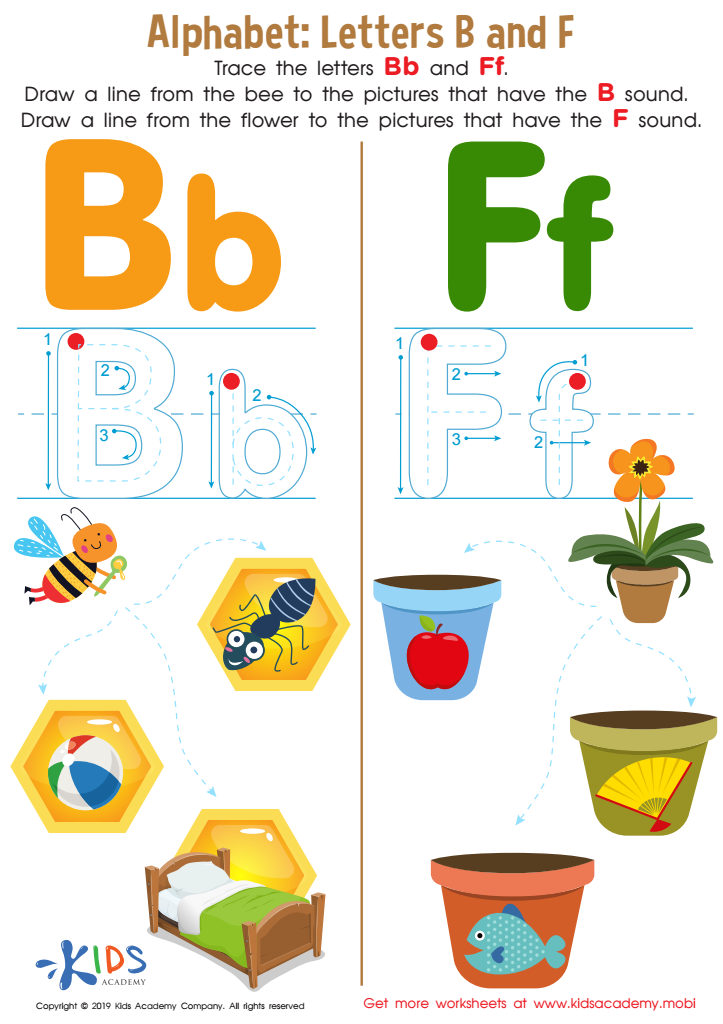

Letters B and F Tracing Worksheet
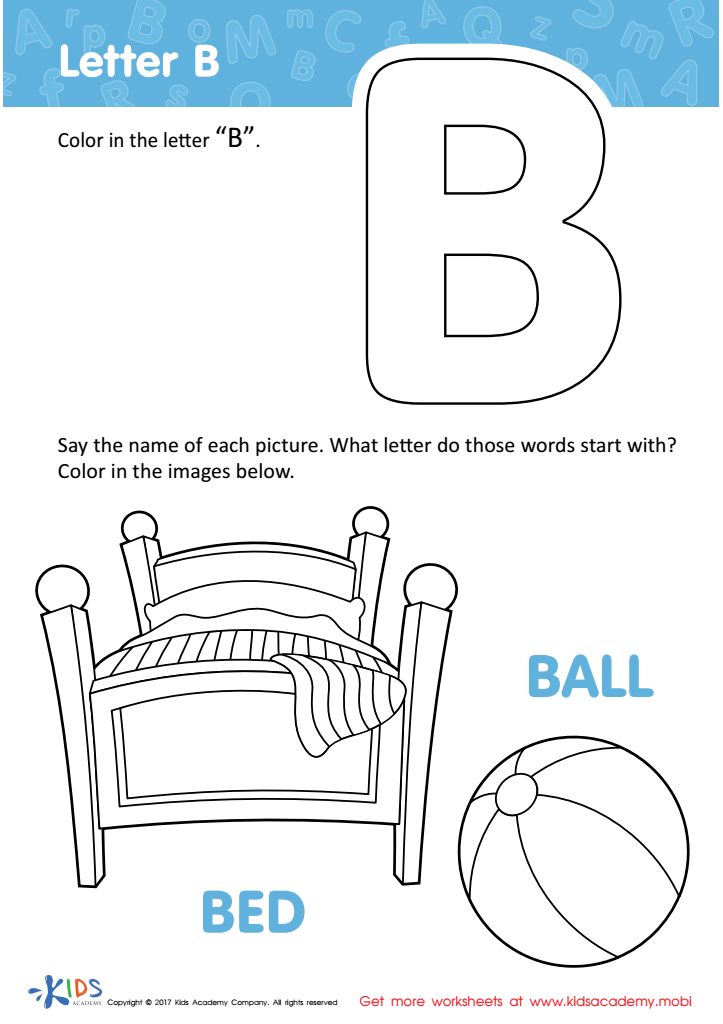

Letter B Coloring Sheet


Letter A Coloring Sheet


Letter H Tracing Page
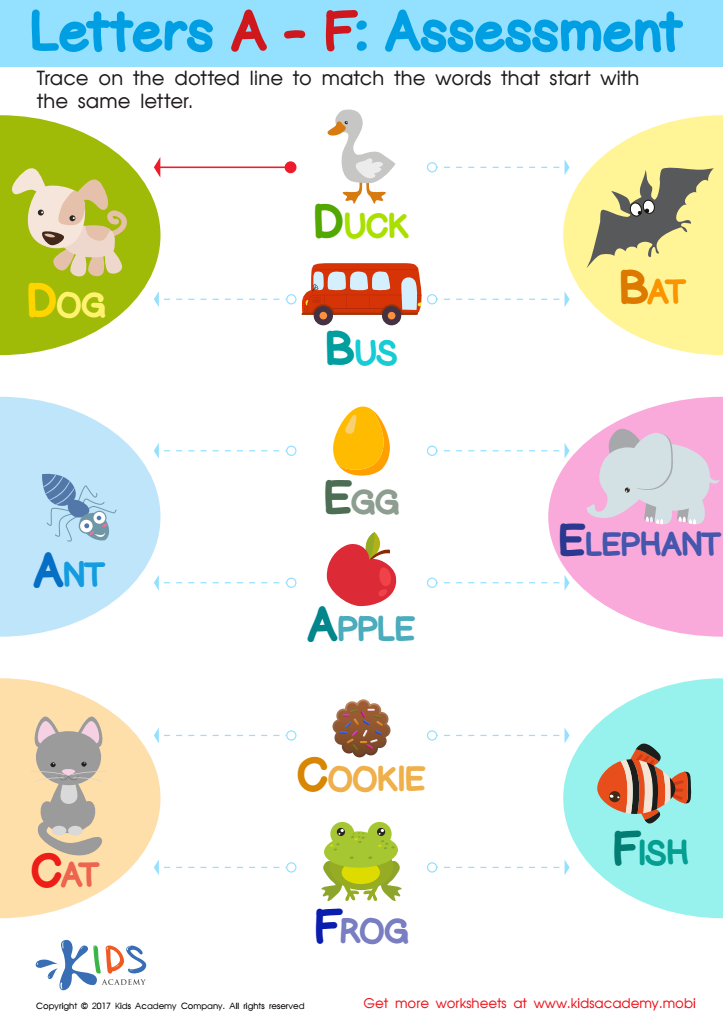

Letters A - F Worksheet
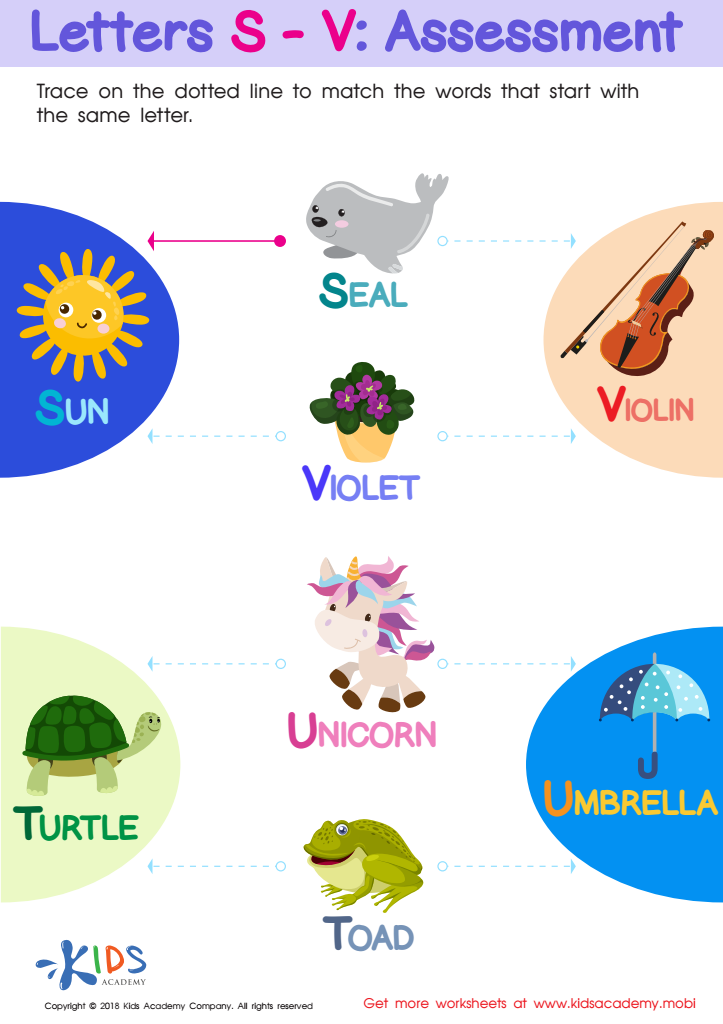

Letters S - V Tracing Worksheet
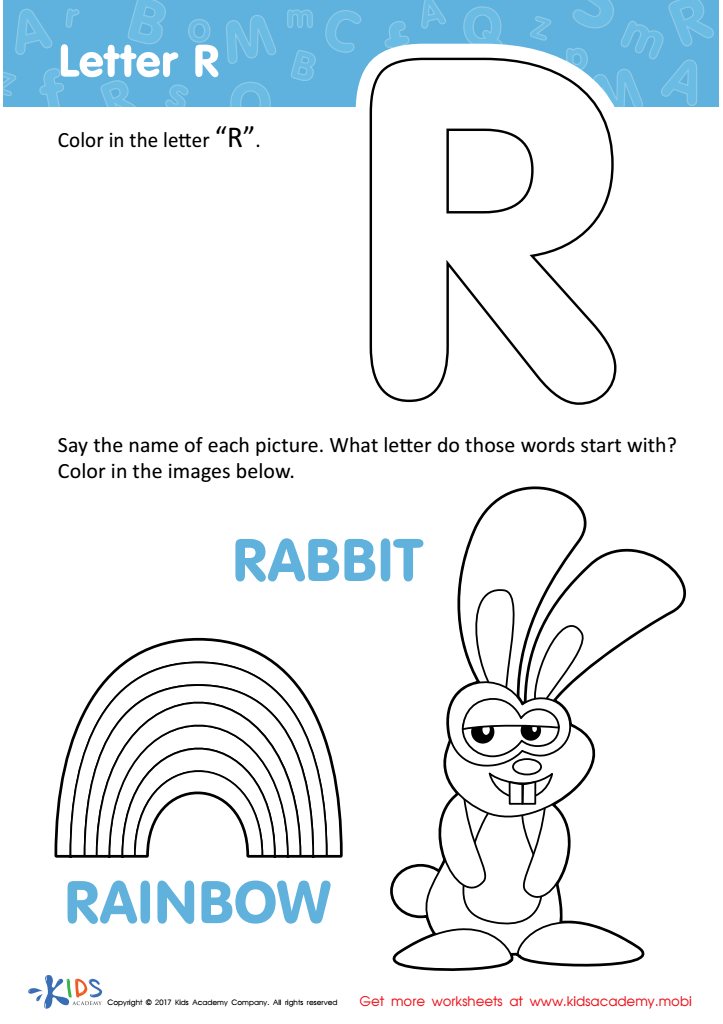

Letter R Coloring Sheet
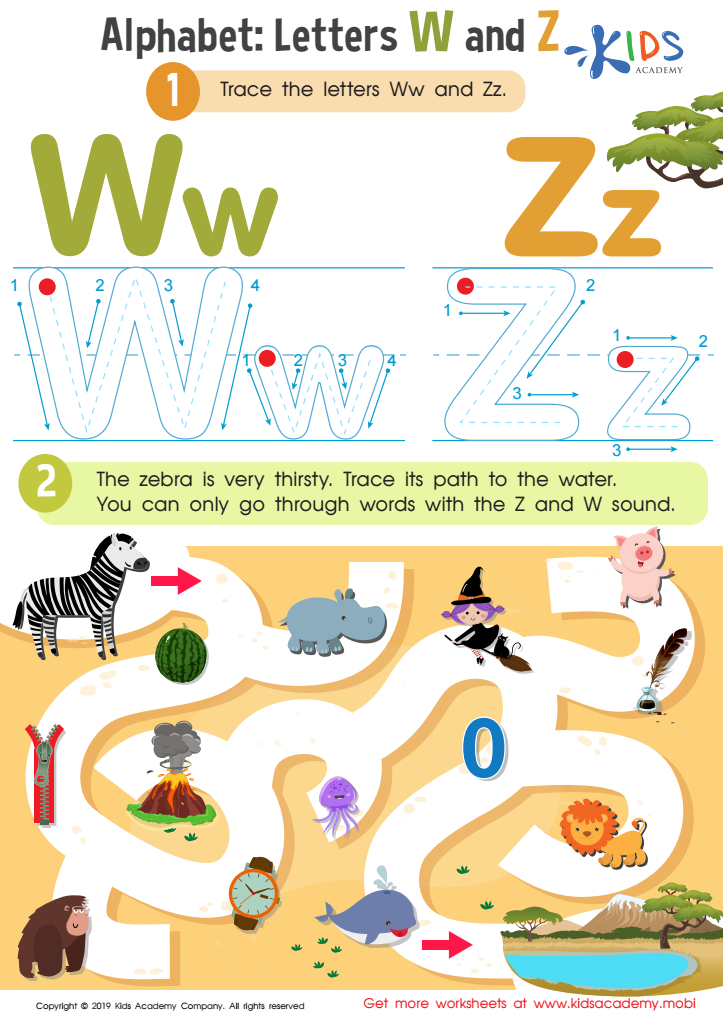

Letters W and Z Tracing Worksheet
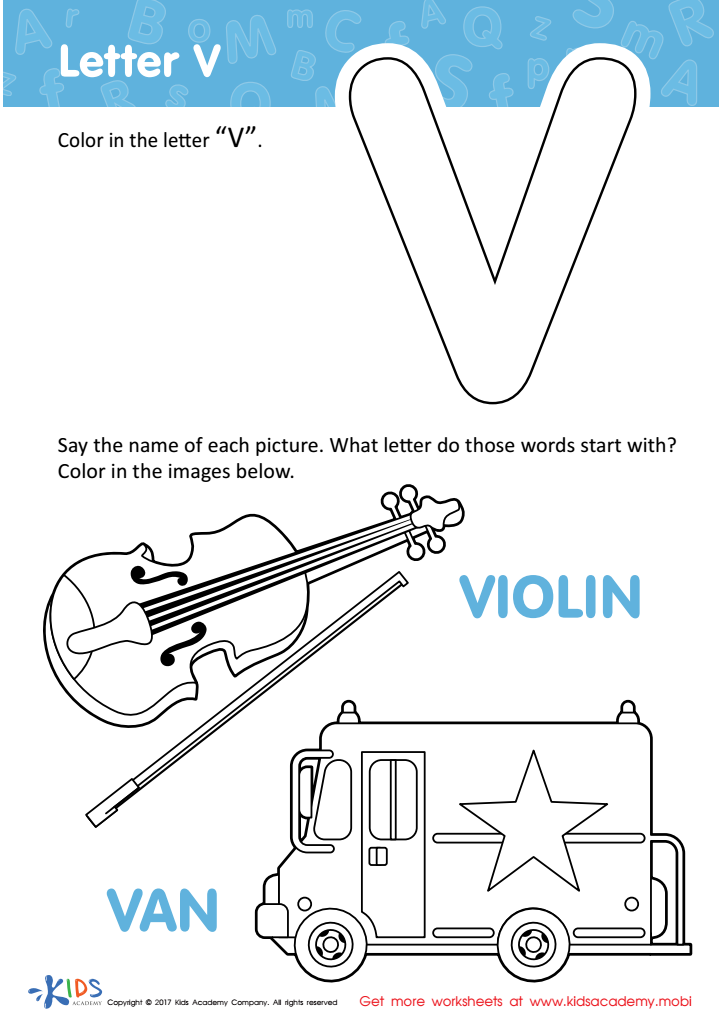

Letter V Coloring Sheet
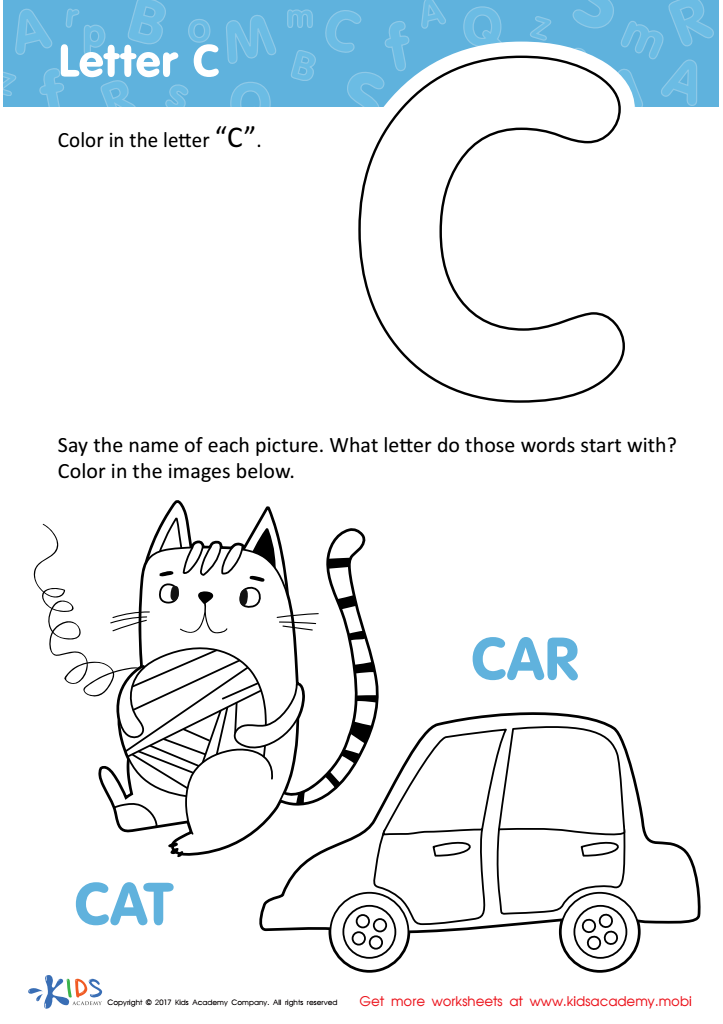

Letter C Coloring Sheet
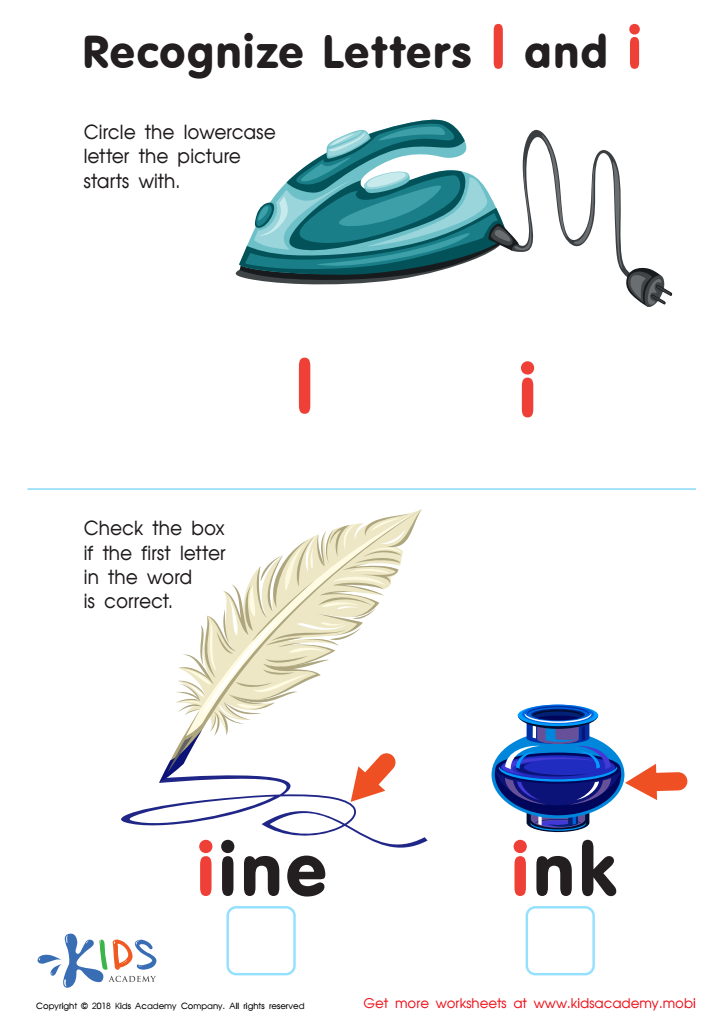

Recognize Letters l and i Worksheet
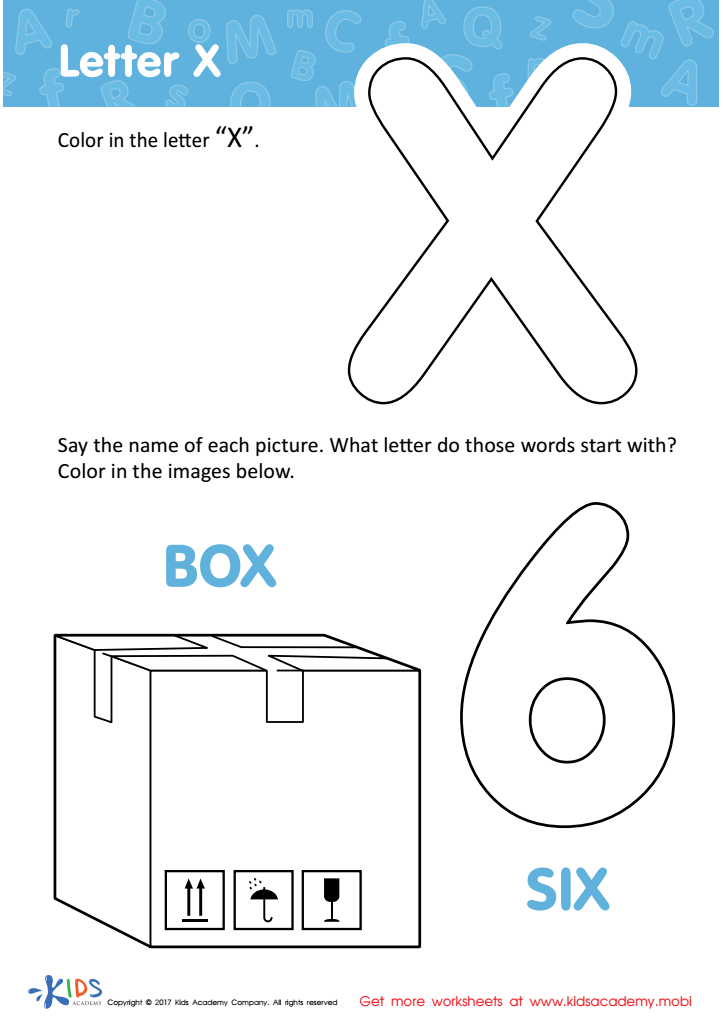

Letter X Coloring Sheet
Writing practice and letter recognition are foundational skills that significantly impact a child's reading and writing abilities. For 5-year-olds, mastering these skills fosters cognitive development and prepares them for academic success.
First, writing practice enhances fine motor skills, hand-eye coordination, and muscle control. These skills are crucial for a child's ability to write legibly and comfortably, which can affect their overall learning experience. Children who struggle with writing may become frustrated or reluctant to engage in tasks that require written communication.
Second, letter recognition is critical. When children learn to recognize and name letters, they build the framework for understanding phonics. This understanding helps them decode words, making it easier to learn to read. Early reading skills are directly associated with better educational outcomes in later years, including higher rates of academic achievement and more positive attitudes toward learning.
Moreover, letter recognition and writing exercises can boost a child's confidence and independence. When children can express themselves through writing, they communicate more effectively and become active participants in their learning. Engaged and confident learners are more likely to develop a love for reading and writing, setting them on a path of lifelong learning.
In essence, parents and teachers should prioritize writing practice and letter recognition because these skills underlie many aspects of fundamental literacy and contribute significantly to a child's growth and future success.
 Assign to My Students
Assign to My Students





















